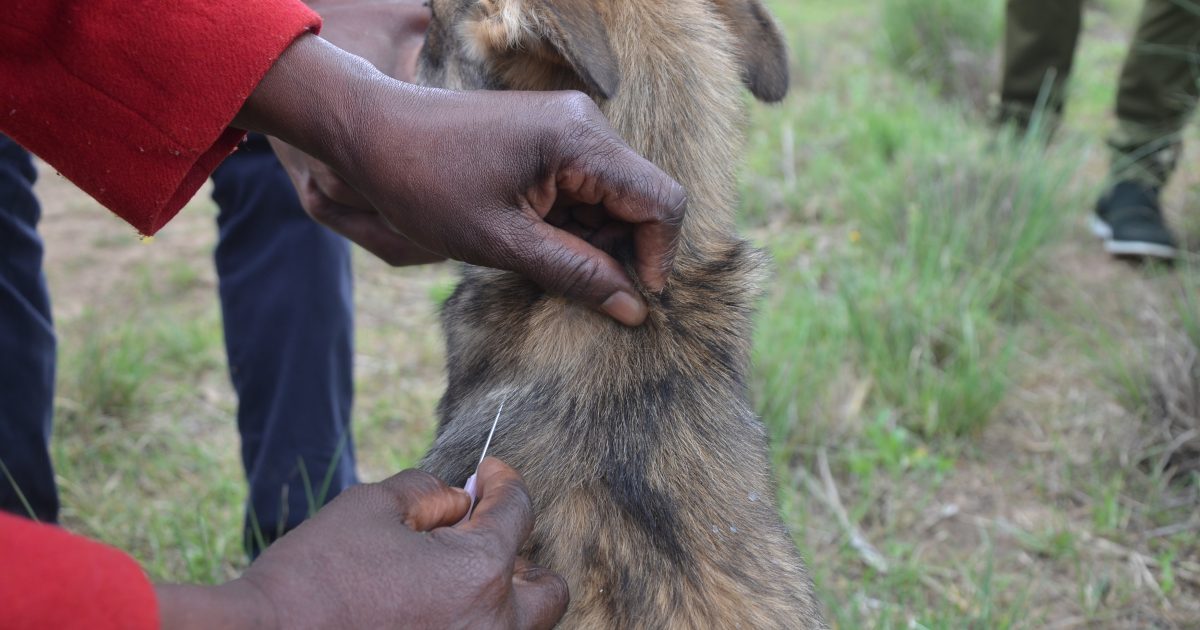Nyandarua County Department of Veterinary has embarked on a ring vaccination exercise in Ndaragwa Sub- County against rabies amid increased reports of stray dog bites.
The exercise conducted this week, at Kahembe, Karago-ini and Gwa Kung’u locations in Leshau Pondo Ward, Ndaragwa Sub- County is aimed at curbing the spread of rabies.

According to Karago-ini Chief, John Kipsoimo, one secondary school boy was bitten last week and two days later four pupils of Michinda Primary School were also bitten by the stray dogs.
“We want to thank the Nyandarua County Veterinary Department for their quick response to our distress call by vaccinating the dogs in these locations,” said Kipsoimo.
According to Ndaragwa Sub- County Veterinary Officer, Dr. Kuria Maina, the Department did ring vaccination in the three locations because there has been an increase in stray dogs reportedly attacking residents.
“The exercise is aimed at preventing an outbreak of rabies in the area in case the stray dogs bite domestic dogs. Residents need to give dogs the same attention they give to cattle vaccination,” emphasized Dr. Maina.
Giving her expert views on the same, Ndaragwa Sub-County Livestock Officer Eunice Maina said that ring vaccination is conducted in a small area around where a case has been reported of a dog attacking a human or animals.
“Unlike mass vaccination where a large region is covered and a two weeks’ notice is given, ring vaccination is done on short notice immediately a case has been reported. It aims at preventing zoonotic disease infections which means that it can be transmitted from livestock to humans,” said Eunice.
According to WHO, about 2,000 people die of rabies in Kenya every year. Children under the age of 15 and communities in remote rural areas are at the highest risk.
The disease is transmitted through the saliva of infected mammals, usually through a bite. Once contracted it has almost 100 per cent fatality rate in humans.
By Anthony Mwangi





